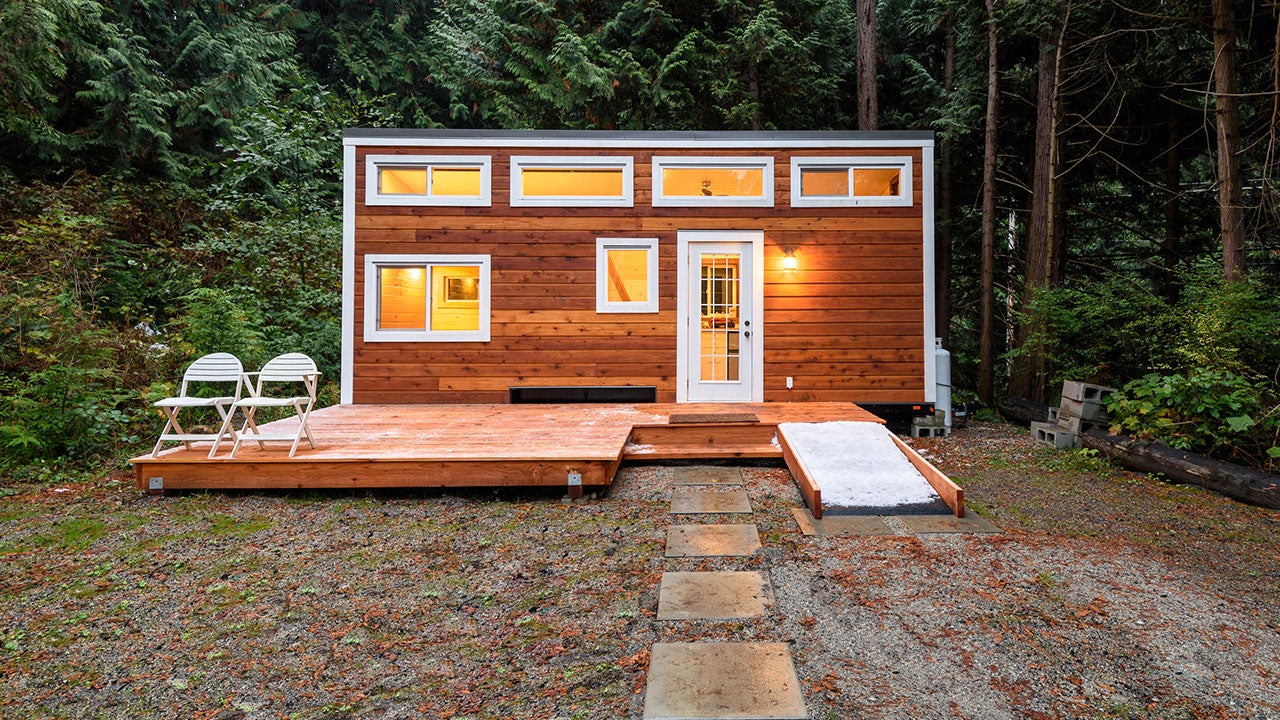Tiny houses are not currently legal in Maryland. The state does not have any specific regulations regarding tiny houses, so they are considered illegal. There are a few exceptions, such as if the tiny house is being used as an accessory dwelling unit (ADU) or if it is on wheels and registered as a trailer, but these are rare cases.
If you are interested in living in a tiny house in Maryland, you will need to advocate for change at the state level.
Yes, tiny houses are legal in Maryland! There are a few regulations that must be met, but nothing that would make it impossible to own a tiny house in the state. The main regulations have to do with building codes and zoning laws.
As long as your tiny house meets all the requirements for a regular home, you should be good to go!
What are the Requirements for a Tiny House in Maryland
There are a few requirements for a tiny house in Maryland. The first is that the tiny house must be on a foundation that is permanent and meets all local building codes. The second requirement is that thetiny house must have utilities, including water, electricity, and sewage.
Lastly, the tiny house must be up to code with the International Residential Code (IRC).
How Do I Obtain a Permit for a Tiny House in Maryland
There are a few things to take into consideration when attempting to obtain a permit for a tiny house in Maryland. The first is whether the tiny house will be on wheels or have a foundation. If the house is on wheels, it will most likely fall under the jurisdiction of the RV code and not require a building permit.
However, if the house has a foundation, then it will be subject to the same regulations as any other home and a building permit will be required. Another thing to consider is where exactly in Maryland you want to put your tiny home. Different counties and municipalities have different rules and regulations regardingtiny homes so it’s important to do your research ahead of time.
If you’re planning on putting your tiny home on wheels, the best bet would be to contact your local department of motor vehicles (DMV) for more information about what type of permit you might need. In general, RVs are required to have registration and insurance just like any other vehicle but there may be additional requirements depending on where you plan on parking your RV/tiny home. For example, some campgrounds or RV parks may have their own set of rules that you must follow in order to stay there overnight or for an extended period of time.
If you’re looking to put your tiny home on a foundation, then you will definitely need to get a building permit from your local county or municipality before moving forward with construction. The process for obtaining a building permit can vary depending on where you live but generally speaking, you will need to submit plans detailing the proposed construction project along with any applicable fees. Once your application has been reviewed and approved, you will be issued a permit that must be prominently displayed at the job site during construction.
Building inspectors will also occasionally stop by during constructionto make sure that everything is being built according to code so it’s important that all work is done up to par.
Are There Any Restrictions on Where I Can Place My Tiny House in Maryland
There are no statewide restrictions on where you can place your tiny house in Maryland. However, each county and municipality has its own zoning regulations, so you’ll need to check with your local planning and zoning office to see if there are any restrictions in your area. Additionally, even if there are no zoning restrictions, you may still need to obtain a building permit before constructing your tiny house.
Tiny Homes Are Now LEGAL!!!
Conclusion
Are Tiny Houses Legal in Maryland?
Tiny houses are becoming more and more popular, but many people are unsure about whether or not they are legal. In Maryland, the answer is a bit complicated.
There are no explicit laws that prohibit tiny houses, but there are also no laws that expressly allow them. This means that each county and municipality has the ability to make its own rules regarding tiny houses. As a result, some areas have bannedtiny houses outright while others have embraced them.
The best way to find out if tiny houses are allowed in your area is to check with your local zoning office.

